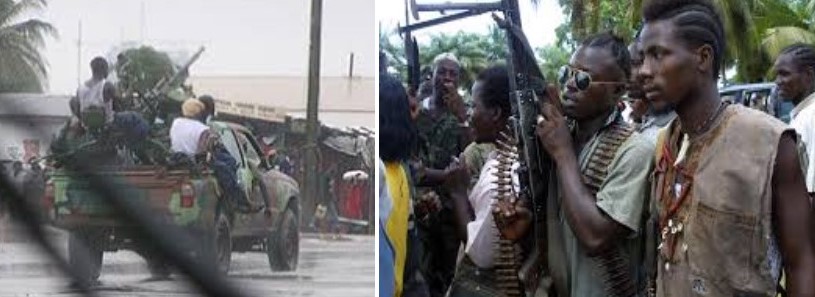By William Selmah – News Public Trust & Franklin Doloquee- Radio Kergheama in collaboration with New Narratives
GANTA, Liberia- A recent survey of people in Nimba County found they are equally split on whether Liberia should establish a war and economic crimes court to try those accused of committing atrocities during the country’s civil war.
Nimba is situated in northeastern Liberia and its border town of Bhutuo from where rebels of the National Patriotic Front (NPFL) launched their first attack into Liberia from neighbouring Ivory Coast on December 24, 1989.
The study, conducted by https://www.thenewnarrative.org in collaboration with the https://newspublictrust.com, found that slightly more than half or 50.5percent of interviewees wanted the court, while slightly less than half, representing 49.5 percent did not.
Two hundred people were interviewed for the study from four of Nimba’s most populous cities –Ganta, Sanniquellie, Karnplay and Saclepea. The study sought to establish the scale of support or opposition to the court.
Support for a court among Nimbaians is being closely monitored by court advocates and by the Weah administration. Many believe President George Weah’s political alliance with Nimba Senator Prince Johnson, who would likely be tried by such a court, is all that is keeping him from expressing his full support.
Johnson has often said Nimbaians would be opposed to a court. But this survey found otherwise.
“I support the court 100%, because this is the only way some hard lessons can be taught and learned,” said Rev. Sam Lombaye Karwoods, a cleric and civil society actor in Sanniquellie. Karwood’s views reflect many of those who said they supported the court because they wanted to see justice for the 250,000 people who died during the conflict.
Reporters assured survey participants that their names would be withheld to protect them from retribution for supporting a court. But Karwood was adamant his name be used. “You can write my name and even take my photo,” he said.
Senator Johnson has threatened to call Nimbaians to arms if he is indicted for his role with Charles Taylor’s National Patriotic Front of Liberia and, later, his own breakaway Independent National Patriotic Front of Liberia. Johnson tops the list of “Most Notorious Perpetrators” named by the 2009 Truth and Reconciliation Commission Report.
Following that threat, hot verbal exchanges ensued between Johnson and Larry Younquoi, fellow legislator and kinsman, with the latter telling Johnson the people of Nimba were no longer divided, as Mandingoes, Manos and Gios but now peacefully coexist in the county.
Rep. Younquoi condemned Sen. Johnson for showing no remorse for atrocities he reportedly committed during the civil war, stressing that he must face a war crimes court. In a heated exchange he said Johnson should be behind bars like Charles Taylor, adding, Nimba would never aid and abet him in his bid to undermine Liberia’s peace and stability.
In only one region – Sanniquellie – was there a wide margin between supporters and opponents of a court. In Sanniquellie, the provincial capital of Nimba, the survey found 62 percent of respondents supported a court while 38 percent were opposed.
The level of support for a court in Nimba was astonishing according to Hassan Bility, Director of the Global Justice and Research Project (GJRP), a nongovernmental organization dedicated to documenting war time atrocities in Liberia and to assisting victims in their quest for justice.
“It shows
that with more accurate information, with more public outreach, it’s not
impossible to
change public opinion,” Bility said.
Mr. Bility, who also hails from Nimba, said opposition to a court would have been much higher a decade ago. He said the people of Nimba would not have then entertained any discussion of a war crimes court because they had been deceived into believing that a court would be to their disadvantage.
However the survey findings suggest, not everyone is supportive of the court.
For some opponents, the entire venture is senseless and a waste of resources that could be used to improve living conditions in the country. In one instance, a woman plainly asked reporters attempting to solicit her views to leave her premises.
“If you come the next time and have different thing to discuss, you will be welcome. Right now, our concern is the high exchange rate between the U.S. and Liberian dollars and the high cost of living and not war crimes court,” the lady screamed.
The survey also noted that many potential respondents were undecided and many others do not understand what a war and economic crimes court is.
“War and economic crimes court?” asked one Karnplay respondent.“I don’t know what that is, so what do you expect me to say”?
Liberia has just a little over a year to meet the July 2020 UN Human Rights Commission deadline to address war crimes justice.
This story was a collaboration with New Narratives as part of the West Africa Justice Reporting Project.

